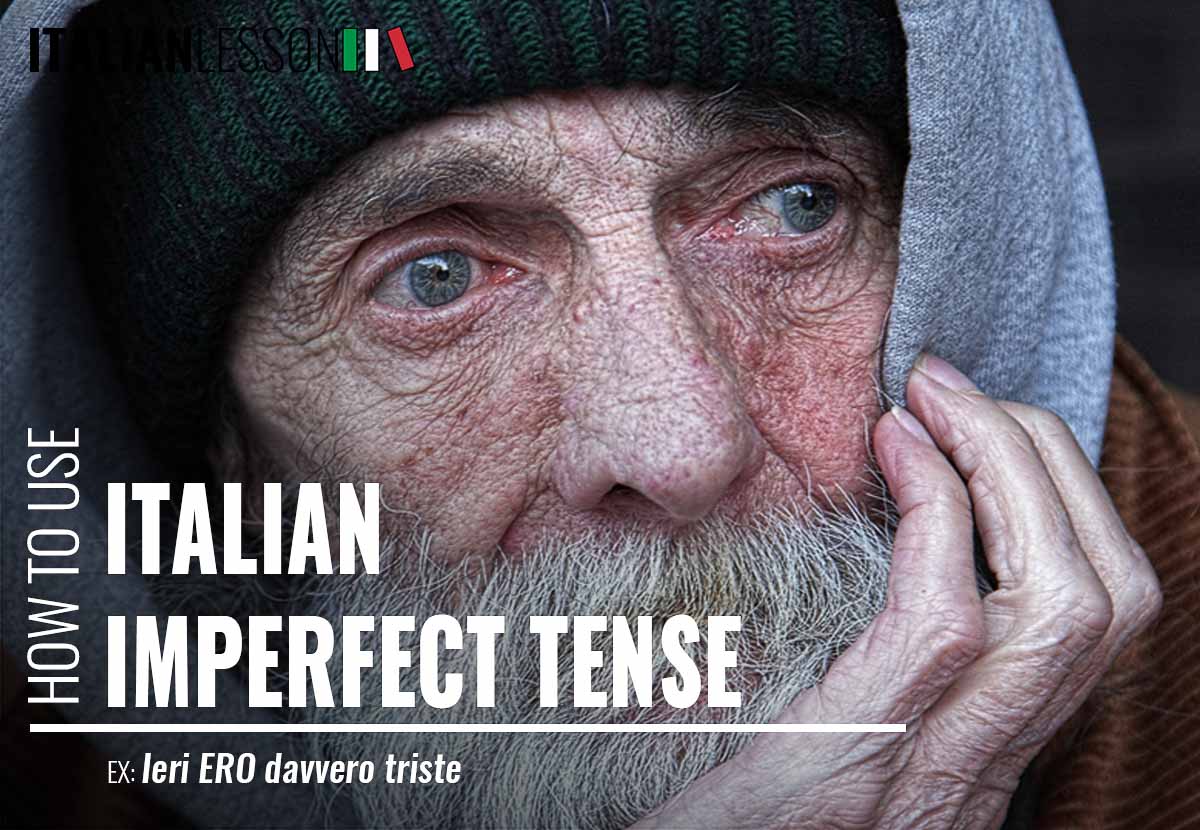
Are you ready to learn a new topic of Italian grammar? Today we will talk about another Italian past tense: the Italian imperfect tense. This Italian tense, together with the present perfect, is the most used when we speak in the past tense.
Have you already read our article on how to use the past tense in Italian?
https://italianlesson.it/how-to/italian-verbs/italian-past-tense/
Every time you read one of our articles, also prepare an Italian vocabulary to look up the words you don’t know and practice with the Italian pronunciation of these words watching video and checking them on dedicated website like Deepl.
First of all, the imperfect tense is a tense used in Italian to talk about an action in the past.
The Italian verb conjugation of this tense needs to be learned by heart but fortunately, in many cases, Italian verbs are regular when conjugated to the imperfect.
In Italian conjugation, there are three verb endings: ARE – ERE – IRE and these endings characterize the imperfect Italian tense conjugation (and other conjugations too).
Now we list, below, three examples of Italian regular verbs with the endings just mentioned.
| AMARE | RIDERE | FINIRE |
| IO AMAVO TU AMAVI EGLI / ELLA – LUI / LEI AMAVA NOI AMAVAMO VOI AMAVATE ESSI / ESSE – LORO AMAVANO | IO RIDEVO TU RIDEVI EGLI / ELLA – LUI / LEI RIDEVA NOI RIDEVAMO VOI RIDEVATE ESSI / ESSE – LORO RIDEVANO | IO FINIVO TU FINIVI EGLI / ELLA – LUI / LEI FINIVA NOI FINIVAMO VOI FINIVATE ESSI / ESSE – LORO FINIVANO |
Unfortunately, as with any grammar rule, there are also irregularities!
Let’s have a look at the conjugation of three very important irregular Italian verbs:
| FARE (To do) | ESSERE (To be) | DIRE (To say / To tell) |
| IO FACEVO TU FACEVI EGLI / ELLA – LUI / LEI FACEVA NOI FACEVAMO VOI FACEVATE ESSI / ESSE – LORO FACEVANO | IO ERO TU ERI EGLI / ELLA – LUI / LEI ERA NOI ERAVAMO VOI ERAVATE ESSI / ESSE – LORO ERANO | IO DICEVO TU DICEVI EGLI / ELLA – LUI / LEI DICEVA NOI DICEVAMO VOI DICEVATE ESSI / ESSE – LORO DICEVANO |
The Italian imperfect tense is used to express many concepts.
Let’s see some examples:
Ieri ero davvero triste / Yesterday I was really sad
La scorsa settimana Maria era molto elegante / Last week Mary was very elegant
Mentre mi guardava, ha cercato di non arrossire / As he looked at me, he tried not to blush
Da bambina bevevo tanto latte /As a child I drank a lot of milk
Claudia diceva a Marco di non bere troppa birra / Claudia told Marco not to drink too much beer
In conclusion, the Italian imperfect tense does not differ too much from the English simple past so it will be easier to learn to use it even if the verb conjugations must be learned by heart, especially those of irregular verbs!
See you soon!
